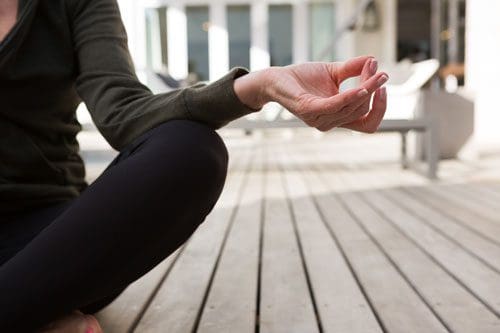 When you make the life-altering choice to seek treatment, you begin to accept new methods to enhance your life, more effective coping skills, and better ways to handle obstacles and conflicts. Finding solace and strength in spirituality is often a popular choice. Here are some resources for developing your spirituality.
When you make the life-altering choice to seek treatment, you begin to accept new methods to enhance your life, more effective coping skills, and better ways to handle obstacles and conflicts. Finding solace and strength in spirituality is often a popular choice. Here are some resources for developing your spirituality.
Express Gratitude
For many years, scientific researchers have tried to quantify the intangible: can being more thankful and expressing gratitude actually improve our lives? The positive evidence is rather compelling.
Harvard Medical School shares data from multiple studies involving the pursuit of happiness through gratitude, positive psychology, and emotional maturity. The studies involved various methods, such as:
- Keeping a gratitude journal
- Counting your blessings
- Meditating
- Thanking someone either with a handwritten note or mentally
- Praying
More often than not, respondents experienced increased well-being and contentment by using these techniques. The point? “Refocus on what you have, rather than what you lack.”
The Greater Good Science Center conducted a three-week study with participants who received counseling services, divided into two groups: one group wrote about their “deepest thoughts and feelings about negative experiences” and the other wrote weekly letters of gratitude to people they knew.
The result? Individuals who wrote the gratitude letters “reported significantly better mental health four weeks and 12 weeks after their writing exercise ended. This suggests that gratitude writing can be beneficial not just for healthy, well-adjusted individuals, but also for those who struggle with mental health concerns.”
Using gratitude as a foundation of your spiritual practice provides elements of action that give you purpose and allow you to acknowledge the progression of your journey.
Establish Important Routines and Rituals
An essential aspect of religion or spirituality is ritual and routine. For many people, especially those wanting ease in recovery, rituals and routine provide:
- Grounding in daily life
- A touchstone to control urges
- Enhancement of your ability to be mindful
- Better self-control
- A sense of peace
Whether you attend mass, write morning pages, take a run at daybreak, practice self-awareness, pray at an altar in your home, or engage in other forms of intentional actions, you’re deliberately placing value on a constant aspect of life, instead of swaying to and fro as a result of whatever happens.
At first, the repetition of ritual might seem boring at first—even mundane. Zen teacher and author Marc Lesser shares this philosophy, as quoted by Spirituality and Practice: “‘A routine is something that we do regularly, without questioning or planning. Once established, routines require little effort, tracking, or decision making; by definition they become a consistent part of our lives.’ Viewed this way, routines reduce stress and help our lives move more smoothly. We would add that keeping to a routine is one of the factors leading to a long life.”
Incorporating routines and rituals in your life reinforce stability and your intention to sobriety, so when an obstacle blocks your path, it’s easier to trust you have the positive means to work through and around it.
Tap Into the Influence of Spiritual Leaders
Books, podcasts, and other media are terrific spirituality resources to help recovery. Even if you don’t follow a particular religious doctrine or usually aren’t a fan of “hippie trippie” stuff, it might surprise you to gain insight from unexpected sources. Here are some options.
The On Being Project
Through podcasts, radio shows, and care packages, Krista Tippett and her team present opportunities for “deep thinking, moral imagination, social courage, and joy to renew inner life, outer life, and life together.” Tippett has a master of divinity and is a National Humanities Medalist. One starting point the organization provides is A Care Package for Uncertain Times: “a collection of podcasts, poetry, meditation, and reflection.”
One World Spirituality Center
With locations in Marietta, North Atlanta, and Roswell, this interspiritual church shares “spiritual tools and practices from around the world, including new thought, interfaith teachings, mysticism, stoicism, Sufism, and other perennial wisdom.” It has many online resources, including videos, discussion groups, classes, and meditations.
Unitarian Universalist
Embracing “the humanistic teachings of the world’s religions,” this organization follows a series of principals and sources for spirituality that “is unbounded, drawing from scripture and science, nature and philosophy, personal experience, and ancient tradition.” It offers books, videos, and congregation locators on its website, as well as virtual events.
Earl E. Bakken Center for Spirituality and Healing
This center, which is part of the University of Minnesota, provides comprehensive resources for overall well-being. It proposes that spirituality is one component of a whole life—the others are environment, health, relationships, security, community, and purpose. The site has numerous exercises and resources, including ways for you to specifically identify your spiritual needs.
Spirituality Resources: Further Reading
Here are some additional methods to define what spirituality means to you and enable you to beckon positivity, wellness, and purpose into your recovery journey.
Progressive Addiction Treatment at Twin Lakes
We believe in a whole-person approach to healing, which includes dedicated care for the mind, body, heart, and spirit. If you or a loved one needs help finding a clear path to sobriety, talk with one of our admissions specialists today.

